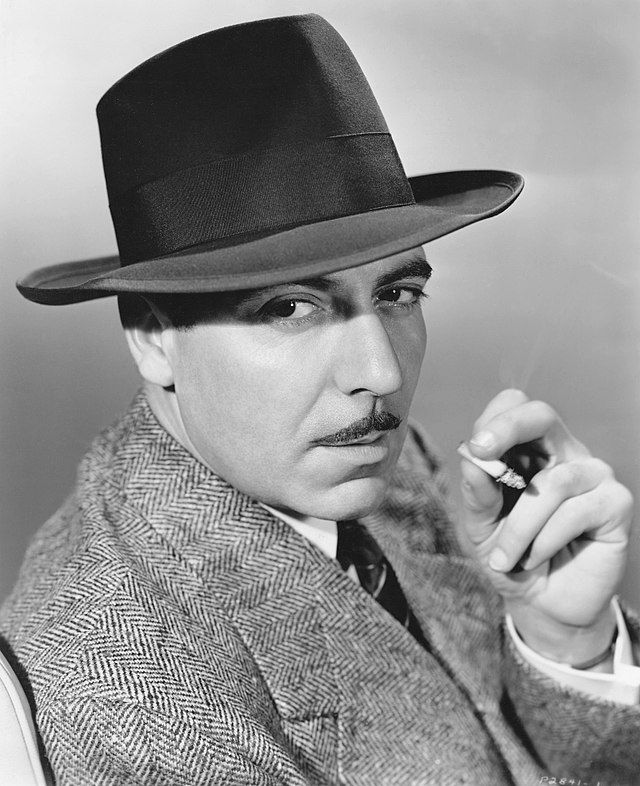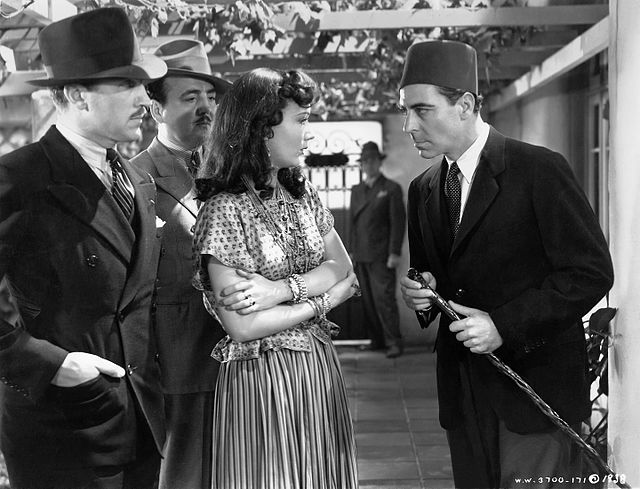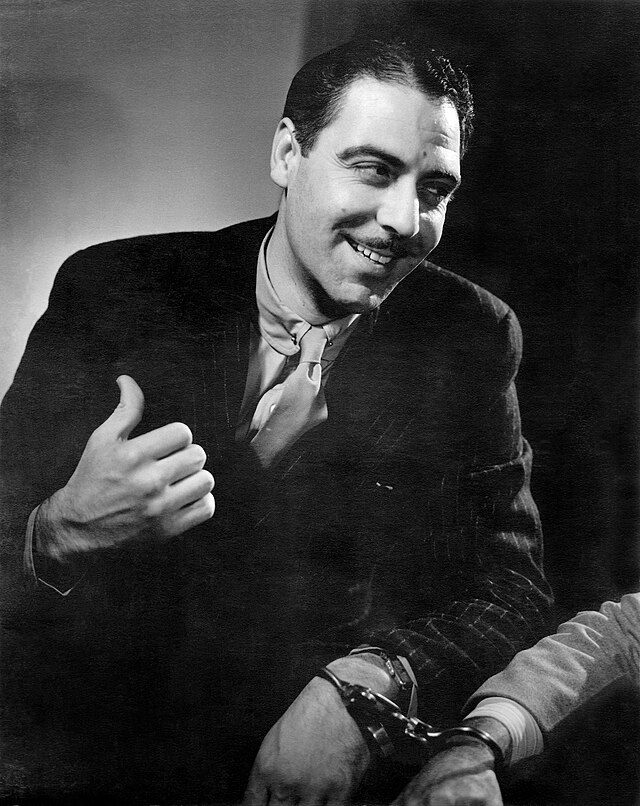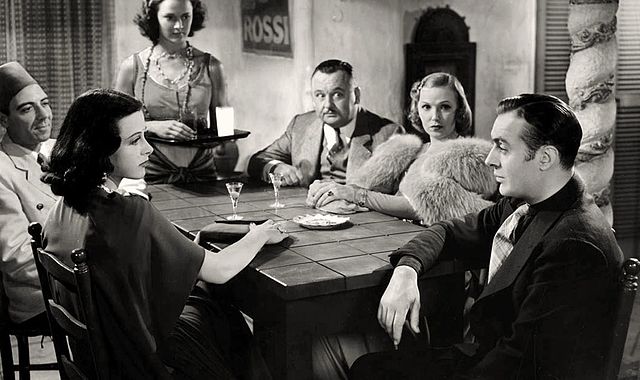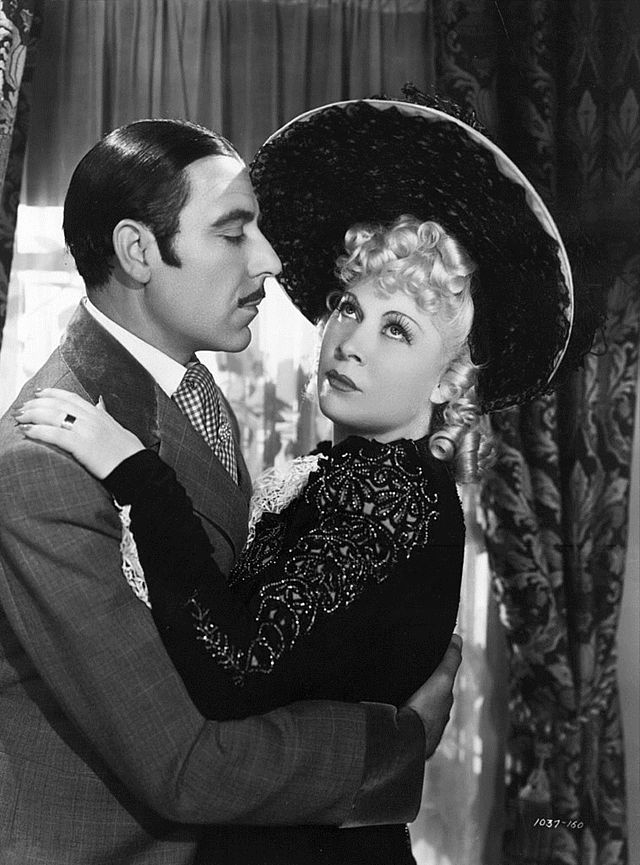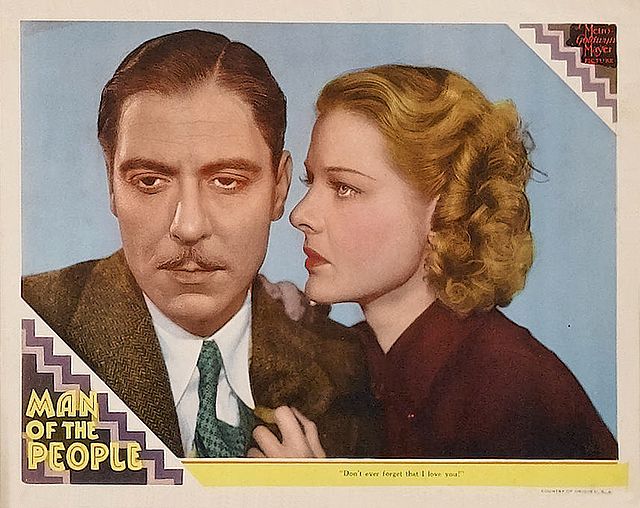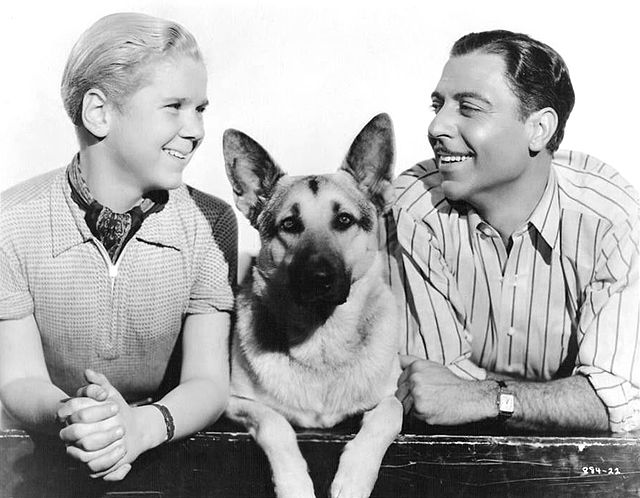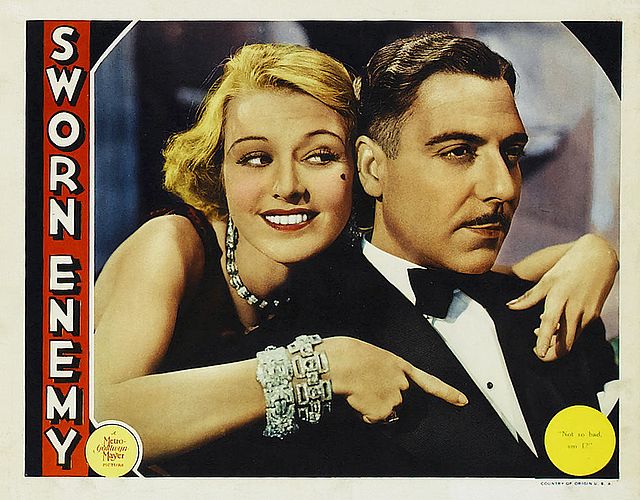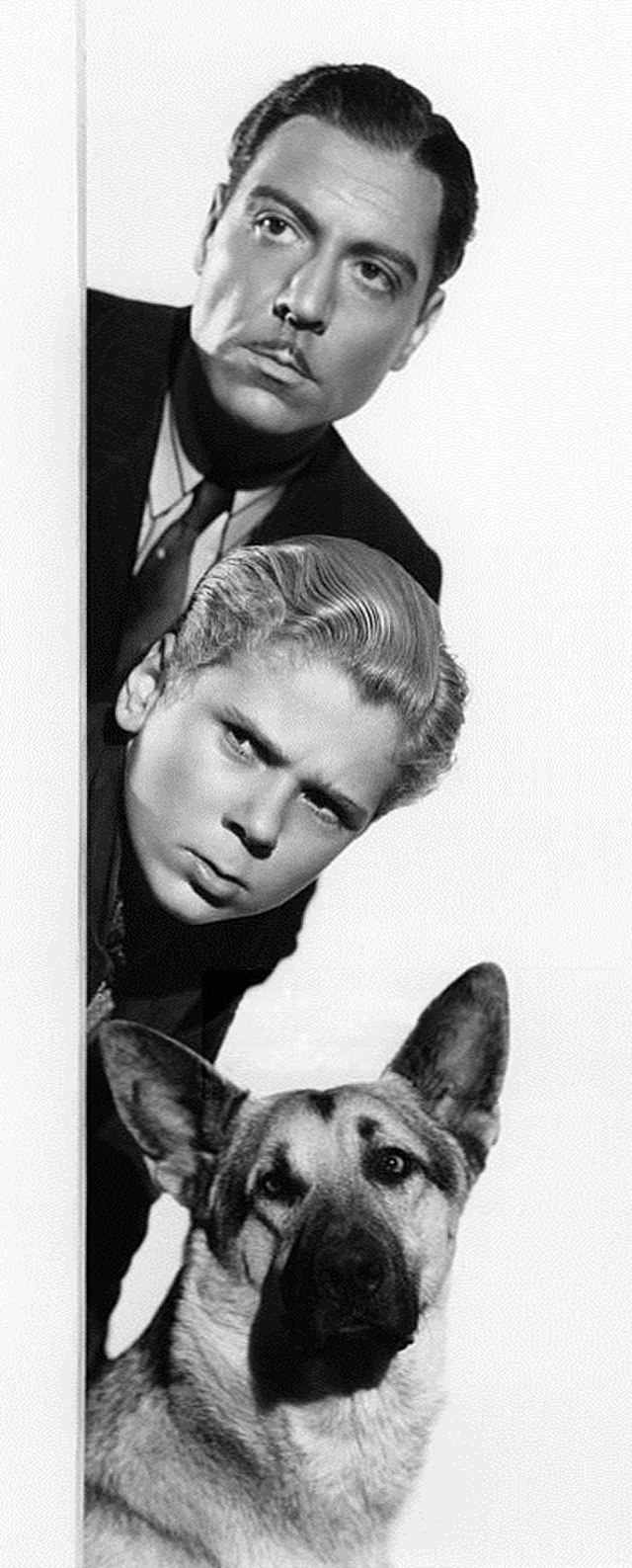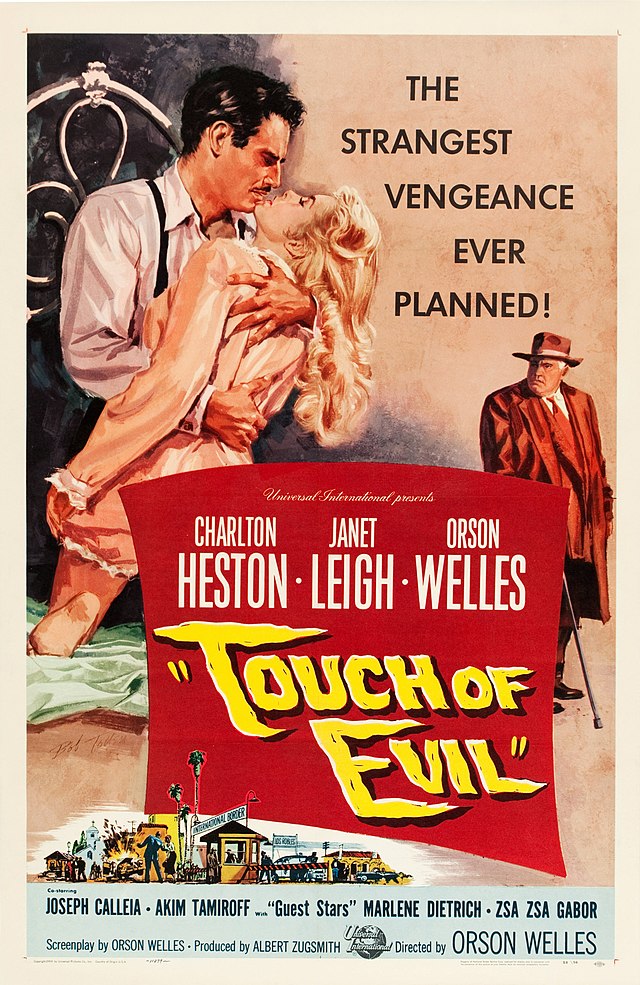Joseph Calleia
back| Full Name | Giuseppe Maria Spurrin-Calleja |
| Stage Name | Joseph Calleia |
| Born | August 4, 1897 |
| Birthplace | Mdina, Malta |
| Died | October 31, 1975 |
| Buried | Santa Maria Addolorata Cemetery, Paola, Malta |
| Married to | Eleanor Vassallo |
| Children | None |
| Notable films | Algiers (1938) - Gilda (1946) - Touch of Evil (1958) - Five Came Back (1939) - The Glass Key (1935) |
Jospeh Calleia
The Maltese Chameleon
Joseph Calleia (1897–1975) was a Maltese-American actor renowned for his deep voice and intense screen presence. Born in Mdina, Malta, Calleia began his career in vaudeville and on Broadway before transitioning to Hollywood in the 1930s. He became known for playing complex, morally ambiguous characters in crime dramas and film noir.
His most acclaimed performances include roles in Algiers (1938), Gilda (1946), and Touch of Evil (1958), where he portrayed characters with a mix of authority, vulnerability, and emotional depth. Though often cast in supporting roles, Calleia’s nuanced performances left lasting impressions.
Related
Joseph Calleia (1897 – 1975)
Biography and Movie Career
Joseph Calleia was a Maltese-American actor and singer whose distinguished career in Hollywood spanned over three decades. Known for his rich voice, versatile acting range, and captivating presence, Calleia became a recognized face in both the stage and film industries. His journey to stardom was one of passion and dedication, marked by a transition from humble beginnings in Malta to international recognition in Hollywood.
Early Life and Personal Background
Born Giuseppe Maria Spurrin-Calleja on August 4, 1897, in the ancient city of Mdina, Malta, Joseph Calleia came from a traditional Maltese family. His father was a merchant, and the family lived a modest but comfortable life. As a child, Calleia was exposed to music and drama, which ignited his early interest in the arts. His deep voice and natural ability for performance were apparent from a young age, setting the stage for a future in entertainment.
He left Malta as a young man, heading first to London and later making his way to the United States. While the transition was challenging, it gave him the opportunity to immerse himself in the world of performance, particularly in vaudeville, which at the time was a popular medium for aspiring actors and singers.
Path to Success
Calleia's early career was spent traveling with vaudeville troupes, where he showcased his talents as a singer and actor. His stage presence, paired with his deep and resonant voice, caught the attention of theater professionals in New York City. In the 1920s, Calleia began performing on Broadway, where he became known for his commanding presence and ability to play a wide range of roles. He made his Broadway debut in Broadway, a play that was successful and helped him solidify his standing as a promising actor.
His big break came when he caught the attention of Hollywood studios in the early 1930s. Calleia's brooding yet charismatic looks, along with his impressive acting skills, were perfect for film noir and crime dramas, genres that were gaining popularity at the time. He made his film debut in The Night Club Lady (1932), and from there, his career took off.
Hollywood Stardom
Joseph Calleia quickly became a sought-after character actor in Hollywood, known for playing complex, morally ambiguous roles, often as the heavy or villain. His breakout film role came in Algiers (1938), where he portrayed the sympathetic police inspector. This role showcased his ability to convey both menace and sensitivity, earning him critical acclaim and further solidifying his place in the industry.
Throughout the 1930s and 1940s, Calleia appeared in a variety of films, including The Glass Key (1935), Five Came Back (1939), Gilda (1946), and Golden Boy (1939). He often played characters that were emotionally conflicted, adding layers to the roles that set him apart from other actors of the time. His role as Pete Menzies in Touch of Evil (1958), directed by Orson Welles, was one of his most memorable performances and a highlight of his later career. Calleia’s portrayal of the tragic, conflicted police officer was nuanced and powerful, earning him widespread praise.
Though he played many villainous roles, Calleia brought depth to these characters, making them more human and relatable. He had a knack for balancing intensity with vulnerability, which made him a favorite among directors and filmgoers alike.
Personal Life and Passions
Outside of his professional life, Joseph Calleia was known for his quiet and private nature. He married Eleanor Vassallo, but the couple did not have any children. He was deeply passionate about his Maltese heritage and often expressed his love for Malta, maintaining strong ties to his homeland throughout his life. Even after achieving success in Hollywood, Calleia would return to Malta for visits, and he maintained a connection to the island’s culture and history.
Despite the intensity of his screen roles, Calleia was known as a kind and gentle man off-camera. He had a deep passion for music, particularly opera, and remained an avid lover of theater throughout his life. He continued to perform on stage when his film schedule allowed, as the theater was his first love. Calleia’s voice, which served him well in film and stage, was originally trained for operatic singing, and he occasionally returned to this passion when opportunities arose.
Later Years and Death
In the 1960s, Joseph Calleia gradually stepped back from acting, focusing more on his personal life and interests. He returned to Malta permanently in his later years, choosing to spend his retirement in the country of his birth. Even as his screen appearances diminished, his legacy as a talented and respected actor continued to live on.
Joseph Calleia passed away on October 31, 1975, at the age of 78. His death was attributed to natural causes, though it is believed he had suffered from heart-related issues in his later years. He was buried in Santa Maria Addolorata Cemetery in Paola, Malta, a resting place befitting a man who had never forgotten his roots.
Legacy
Joseph Calleia left behind a remarkable body of work, with his performances continuing to be appreciated by film enthusiasts and historians. His ability to blend gravitas with emotional depth made him one of the most captivating actors of his time. Despite often playing supporting roles, Calleia’s performances were always memorable, and he remains an iconic figure in both Maltese and Hollywood history. His journey from the small Mediterranean island of Malta to the glitz of Hollywood is a testament to his talent, determination, and enduring love for the performing arts.
Short Video Bio of Joseph Calleia
Joseph Calleia’s Acting Style
Joseph Calleia’s acting style was a blend of intensity, subtlety, and a natural charisma that made his performances stand out, even when he was in supporting roles. Known for his deep, resonant voice and strong screen presence, Calleia had a unique ability to embody characters that were often morally ambiguous or conflicted. He brought an emotional complexity to his roles, whether he was playing a hardened gangster, a corrupt politician, or a sympathetic law enforcement officer.
Versatility in Character Portrayal
One of Calleia’s greatest strengths was his versatility. While many actors of his time were typecast into specific roles, Calleia had the ability to navigate different genres and character types with ease. He was equally comfortable in crime dramas, film noir, Westerns, and even comedies. This range allowed him to play everything from ruthless villains to sensitive, introspective characters.
Calleia often portrayed men of authority—police officers, gang leaders, or military figures—imbuing them with a gravitas that felt authentic. His characters frequently operated on the fringes of morality, which allowed him to explore emotional depth and nuance. For instance, in Touch of Evil (1958), his role as Pete Menzies, a loyal but tragically flawed police officer, showcased his ability to portray vulnerability in a man who is otherwise hardened by life. His characters were rarely purely good or evil; they were layered with internal conflicts that Calleia skillfully brought to the surface.
Mastery of Subtlety and Emotional Depth
Calleia’s acting style was marked by a keen understanding of subtlety. He didn’t overact, nor did he rely on theatrical gestures, which were common in early cinema. Instead, he used small facial expressions, shifts in tone, and body language to convey his characters’ thoughts and emotions. His performances often had a slow burn quality, where the intensity of his emotions built up gradually and erupted at key moments.
In Algiers (1938), for instance, Calleia played the role of Inspector Louvain, a man chasing after the elusive criminal Pépé le Moko. Rather than portraying the inspector as a one-dimensional lawman, Calleia gave him a deep sense of weariness and empathy. His ability to humanize these types of characters set him apart from many of his contemporaries, who might have leaned into caricature or melodrama.
Commanding Screen Presence
Calleia’s physicality and voice were central to his acting style. His deep voice, tinged with an accent from his Maltese heritage, lent a richness and authority to his performances. Whether he was delivering threats as a mob boss or expressing concern as a police officer, his voice had a magnetic quality that drew audiences in. This vocal command was particularly effective in roles where he needed to convey power or menace without raising his voice.
His physical presence was equally commanding. Even when sharing the screen with major stars, Calleia had a way of drawing attention. He wasn’t a large man, but his posture and the way he carried himself often made him the dominant figure in a scene. He had a stoic quality that gave his characters a sense of self-control and inner strength, even when they were dealing with internal turmoil.
Complexity in Villainous Roles
Though Calleia often played villains, his portrayals were far from stereotypical. Instead of relying on exaggerated traits to depict evil, he gave his antagonists a humanity that made them more relatable—and sometimes even sympathetic. His villains were often tragic figures, shaped by circumstance rather than inherent malice. In Gilda (1946), for instance, Calleia played the role of the casino manager, Uncle Pio, who was deeply loyal to his employer but also conflicted by the immoral world he inhabited. This added layers to his character and made his villainy more complex and believable.
Calleia had an uncanny ability to show the duality in his characters. His antagonists were never purely evil but rather men who had made wrong choices, men with a code of honor or personal loyalties that complicated their actions. This approach to villainy made his performances stand out from the more one-dimensional portrayals that were common in Hollywood at the time.
Understated Emotionalism
While many actors of the era embraced melodrama, Calleia’s acting style was often understated. He didn’t need to resort to loud outbursts or overly dramatic displays of emotion to communicate the intensity of a scene. Instead, his eyes, tone, and subtle shifts in demeanor conveyed everything. His characters often appeared stoic or reserved on the surface, but Calleia used that restraint to his advantage, allowing moments of emotional release to feel more powerful when they finally arrived.
In Five Came Back (1939), for instance, Calleia’s portrayal of Vasquez, a man who sacrifices himself for others, was filled with quiet dignity. Rather than drawing attention to the act of heroism with melodramatic flair, Calleia played it with an understated grace that made the sacrifice feel even more impactful.
A Methodical Approach
Calleia’s performances seemed to be carefully considered and methodical. He was known for fully immersing himself in his roles, paying attention to every detail, from accents and gestures to the psychological motivations of his characters. This approach gave his performances an air of authenticity. He seemed less like an actor playing a part and more like the character itself, fully realized and believable. His background in theater also influenced his methodical approach, as he brought a sense of discipline and craft to his film roles.
Conclusion
Joseph Calleia’s acting style was a masterful blend of subtlety, emotional depth, and commanding presence. His ability to portray complex, conflicted characters with humanity and grace made him one of the most versatile and respected actors of his time. Whether playing a ruthless gangster, a tragic cop, or a sympathetic villain, Calleia brought a quiet intensity to his performances that resonated with audiences long after the credits rolled. His acting style remains a model of how to bring nuance and authenticity to roles, making him a standout figure in Hollywood's Golden Age.
Awards and Recognition
Joseph Calleia, while widely respected as a talented and versatile actor, did not receive many major awards or formal recognition in the way that some of his contemporaries did. Despite his significant body of work in both stage and film, Calleia’s contributions were often overlooked by major awards organizations, possibly due to his consistent presence as a character actor rather than a leading man.
However, his work was appreciated by peers, critics, and audiences for his unique blend of subtlety, intensity, and emotional depth in his performances. Here is an overview of the recognition and accolades associated with his career:
Broadway Acclaim
- Before transitioning to film, Calleia earned considerable respect as a stage actor. His performances on Broadway, especially in productions like Broadway (1926) and Small Miracle (1934), received critical acclaim. While there were no Tony Awards in his early Broadway days, his stage work earned him a reputation as a reliable and skillful performer.
Critical Acclaim for Films
- Algiers (1938): Calleia’s role as Inspector Louvain garnered significant praise. His portrayal was recognized for adding depth and complexity to the film’s tension, and his work in this movie was one of the highlights of his career.
- Touch of Evil (1958): In this Orson Welles film, Calleia’s portrayal of Pete Menzies, the tragic, conflicted police officer, was highly praised by critics. This performance is often cited as one of his best, and the film itself has been hailed as a classic in the noir genre. While he did not receive any formal awards for the role, his performance was considered one of the film’s strongest elements.
- Gilda (1946): As Uncle Pio in this iconic film noir, Calleia’s performance was appreciated for its subtlety and warmth, contrasting with the film’s darker themes. His ability to balance lightheartedness and sincerity helped cement his status as a standout supporting actor.
Maltese Recognition
- Despite limited formal recognition in Hollywood, Calleia was deeply respected in his home country of Malta. His success as a Maltese actor in Hollywood was seen as a point of national pride. In later years, Maltese cultural organizations celebrated his legacy as one of the most successful Maltese performers of his generation.
- In 1960, Calleia was invited to return to Malta for a special homecoming, where he was honored for his contributions to the arts and his representation of Malta on the international stage. His connection to Malta remained strong throughout his life, and he was regarded as a cultural ambassador for the island.
Legacy and Retrospective Recognition
- While Calleia may not have received major film awards during his career, his contributions have been recognized in later years through retrospectives and appreciation for classic film performances. Scholars and film historians have revisited his roles in films like Touch of Evil and Algiers, acknowledging his impact on the film noir genre and his skill as a character actor.
- His nuanced performances have been featured in numerous classic film festivals and retrospectives that celebrate the contributions of actors from Hollywood’s Golden Age. Films like Gilda and Touch of Evil continue to be screened, often with Calleia’s performances being singled out for their power and subtlety.
Posthumous Honors
- Although Calleia did not receive major industry awards during his lifetime, his legacy has been honored posthumously. His burial in Malta, and the respect afforded to him by the Maltese people, stands as an acknowledgment of his impact. Cultural institutions in Malta have celebrated his career in the years following his death.
- In recent years, there has been growing recognition of Calleia’s contributions, particularly in film history circles. He is remembered as one of the standout character actors of his era, whose work added depth and richness to the films in which he appeared.
Quotes from Joseph Calleia
Memorable Quotes from Films:
From Touch of Evil (1958) as Pete Menzies:
"You’re a cop. You have to hold yourself up like a cop!"
This line highlights Menzies' conflicted sense of duty and loyalty, as he grapples with his moral responsibility versus his friendship with Orson Welles’ corrupt character, Hank Quinlan.
From Gilda (1946) as Uncle Pio:
"I can't help but think of you as a little girl with your hair in braids, and I always will."
In this famous noir, Uncle Pio’s devotion and fatherly affection for Gilda (played by Rita Hayworth) shines through in this tender moment, despite the film's darker tones.
From Algiers (1938) as Inspector Louvain:
"You can't escape forever, Pépé. Sooner or later, you’ll have to face what you’re running from."
Calleia's character, a police inspector hunting Charles Boyer’s Pépé le Moko, delivers this line, reflecting his relentless pursuit tempered by a certain empathy for the fugitive.
From Five Came Back (1939) as Vasquez:
"It is better to die with honor than to live without it."
In this survival drama, Calleia's character Vasquez expresses his strong sense of pride and honor, which drives him to sacrifice himself for others. This quote encapsulates the emotional depth he brought to his roles.
Memorable Quotes from Interviews and Reflections:
On Acting and Hollywood:
"I never needed to be a star, just a good actor. The star's light fades, but a good actor keeps his craft alive."
Calleia once reflected on his career and the fact that he often played supporting roles. This quote shows his humble perspective and dedication to the craft rather than the fame.
On Playing Villains:
"Villains are not born evil. They are human beings with stories of their own, and it’s the actor’s job to make the audience see that."
Calleia was known for bringing humanity to the villains he played, and this quote explains his philosophy of acting, particularly when it came to morally complex characters.
On His Maltese Roots:
"Malta may be small, but it is vast in history, and I carry that with me in every role I play."
Calleia remained proud of his Maltese heritage throughout his life and often spoke of how his upbringing and cultural background influenced his work as an actor.
Movies Featuring Joseph Calleia
1931:
- The Man Called Back
Synopsis: A doctor is disgraced and forced to leave the U.S. to start anew in the South Seas, but soon finds himself wrapped up in love and intrigue.
1932:
- The Night Club Lady
Synopsis: A nightclub singer becomes involved in a murder investigation, where Joseph Calleia plays a significant role in the criminal plot.
1934:
- The Line-Up
Synopsis: This crime drama follows the investigation of a brutal murder, with Calleia playing a central role as part of the gang involved.
1935:
- Public Hero No. 1
Synopsis: An undercover cop infiltrates a gang to bring them to justice, with Calleia portraying the villainous leader of the gang. - The Glass Key
Synopsis: A political drama where Calleia plays a gangster caught up in corruption and murder.
1936:
- The Devil’s Playground
Synopsis: A Navy officer faces conflict during an undersea expedition, with Calleia playing a stern and antagonistic character. - Woman Trap
Synopsis: A policeman must navigate a web of crime and betrayal involving his brother, with Calleia playing a criminal mastermind.
1937:
- Man of the People
Synopsis: A political story where Calleia plays a shady politician whose ambitions lead to his downfall. - The Last Train from Madrid
Synopsis: Set during the Spanish Civil War, Calleia plays a supporting role in this tale of escape and survival.
1938:
- Algiers
Synopsis: Calleia plays a sympathetic police inspector in this romantic crime drama about a thief hiding in the Casbah of Algiers. - Yellow Jack
Synopsis: A drama about the fight against yellow fever, where Calleia plays a pivotal role as one of the courageous team members.
1939:
- Five Came Back
Synopsis: A group of airplane passengers crashes in the jungle, where they face survival challenges. Calleia plays a revolutionary involved in the group’s fate. - Golden Boy
Synopsis: Calleia plays a small but key role in this boxing drama about a young violinist who becomes a prizefighter. - Full Confession
Synopsis: A priest wrestles with whether to break the seal of confession to save a condemned man, with Calleia portraying a key witness in the case.
1940:
- Johnny Apollo
Synopsis: A man turns to crime to help his disgraced father, with Calleia playing a tough gangster. - The Great McGinty
Synopsis: A political comedy where Calleia plays a crucial part in a corrupt system that propels an everyman to political success.
1941:
- Sing Another Chorus
Synopsis: A light-hearted musical about a group of performers, with Calleia appearing in a comedic role. - The Monster and the Girl
Synopsis: Calleia plays a detective investigating a bizarre murder, blending film noir with horror elements.
1942:
- The Lady Has Plans
Synopsis: Calleia plays a sinister villain in this espionage thriller set during World War II.
1944:
- The Cross of Lorraine
Synopsis: A World War II drama focusing on French prisoners of war, with Calleia in a supporting role as a fellow prisoner.
1946:
- Gilda
Synopsis: In this iconic film noir, Calleia plays a loyal but conflicted casino manager embroiled in a love triangle with Rita Hayworth and Glenn Ford.
1948:
- Lured
Synopsis: A detective story involving the search for a serial killer, with Calleia playing a suspicious nightclub owner. - Fort Apache
Synopsis: Calleia appears in a supporting role in this classic John Ford Western about the conflict between a stubborn general and Native Americans.
1951:
- The Great Caruso
Synopsis: A biographical film about famous opera singer Enrico Caruso, with Calleia playing one of Caruso’s early mentors.
1953:
- Sangaree
Synopsis: Set in the aftermath of the American Revolution, Calleia plays a corrupt official in a tale of romance and political intrigue.
1956:
- Meet Me in Las Vegas
Synopsis: A musical comedy about a gambler who gets lucky every time he touches a woman, with Calleia playing a casino boss.
1958:
- Touch of Evil
Synopsis: Calleia plays a tragic, conflicted police officer in Orson Welles' classic film noir about corruption and moral ambiguity on the U.S.-Mexico border.
1959:
- The Alamo
Synopsis: In this historical epic about the famous battle, Calleia plays a general in the Mexican army under Santa Anna.
1963:
- Johnny Cool
Synopsis: Calleia’s final film, where he plays a mob boss in this crime thriller about an assassin’s revenge plot.

